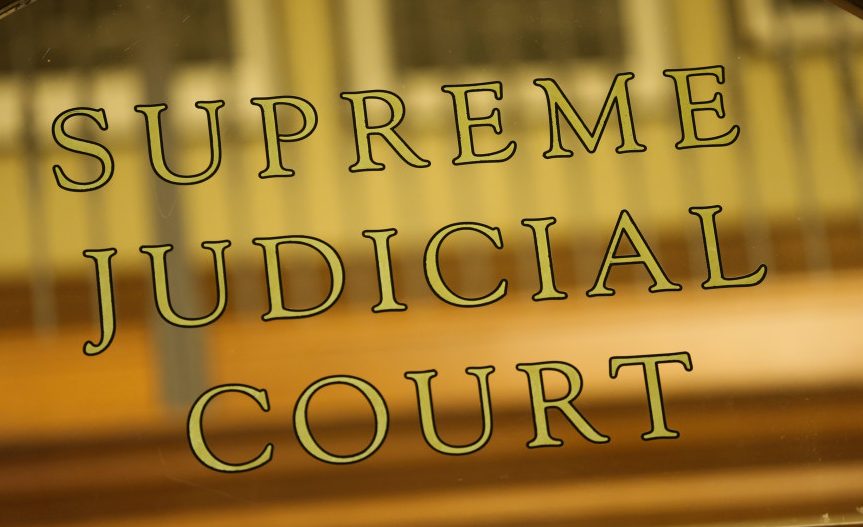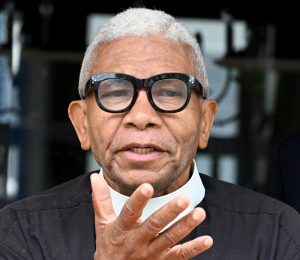
Murphy: Call them by their names
A horrifying case involving the sex trafficking of Asian women (and girls no doubt) in Massachusetts and Virginia made its way to the state’s highest court yesterday for a hearing to determine whether a couple dozen “men of influence” who participated in the sex trafficking should have their identities revealed before a magistrate determines whether they should face criminal charges.
The obvious answer is yes, but obvious can go sideways when “men of influence” are involved.
Nobody is questioning whether the crime occurred.
Indeed, two of the three traffickers recently changed their pleas to guilty. And nobody seriously doubts the identities of the “men of influence” since they were only too happy to type their real names and phone numbers, etc., into an on-line portal when they signed up for “services.”
Someone needs to explain to these knuckleheads that giving your real name is the same as pleading guilty.
Crimes behind closed doors are no different than crimes in the middle of Main Street – they are always the public’s business, especially after the district attorney has filed an application for criminal charges. Read the law. There’s no special exception for “men of influence.”
If the “men of influence” had been arrested by the feds like the traffickers were, their names would have been out there on day one. But instead, their cases were sent to state prosecutors, who filed complaints with the local magistrate.
While there are technical legal differences between being arrested and being brought before a magistrate, in both cases there must be probable cause to believe that a crime occurred. The magistrate can reject the charges, but they usually don’t when the case is filed by the district attorney because prosecutors cannot ethically initiate a case without probable cause.
If probable cause with an arrest is enough to justify public disclosure of a person’s identity, then probable cause without an arrest is also enough; it has to be – because many cases start with a magistrate’s hearing and the public has a right to know about all criminal cases at all stages of the process. If the magistrate declines charges, the public record will reflect this.
The magistrate’s decision-making process demands an even brighter light than police-initiated arrests because it is more difficult to monitor.
If the public is kept in the dark until after the magistrate issues charges, there is simply no way to determine whether the magistrate’s decision in a single case (or decisions that show a pattern) was racist or corrupt, etc. At least one lawyer for the public interest argued this point to the Supreme Judicial Court Monday and said that public access to the men’s identities is essential to ensure that certain people are not treated favorably. But not one of the lawyers or justices said the quiet part out loud: “If these were impoverished men of color, would we even be arguing about this?”
The “men of influence” have already been wielding their power and keeping their identities secret for too long. Why else would U.S. Attorney Joshua Levy have referred to the situation on day one as a “brothel” rather than “sex trafficking?” The word brothel is straight out of Gunsmoke – it’s not even a criminal term; it appears nowhere in the federal code.
Levy also failed to charge the traffickers with a hate crime. Why? All the trafficked women were Asian. It was a hate crime in Georgia a few years back when a porn-fueled sadist killed six Asian women in “massage parlors.” How is sex trafficking only Asian women not a hate crime?
Targeting a woman because she’s female is also a hate crime under federal (but not state) law, and these poor women were clearly targeted because of their female body parts, so again, why no hate crime charge? Levy isn’t even charging Matthew Farwell (another man of influence) with a hate crime for allegedly murdering a woman he reportedly impregnated, after sexually abusing her for years. How much more hateful does a man have to be to deserve a hate crime charge?
By undercharging sex traffickers and using words like “brothel,” Levy laid the groundwork for the “men of influence” who participated in the trafficking to think of themselves as special. Is it any wonder they felt entitled to demand privacy during what should clearly be a public proceeding?
If only the victimized Asian women had the social status of the doctors and lawyers who treated them so inhumanely. The “men of influence” would not only be identified by now, they would be in jail.
— Wendy Murphy is a former prosecutor and attorney specializing in the rights of women, children and crime victims. @wmurphylaw
Acting US Attorney Joshua Levy (Matt Stone/Boston Herald)


